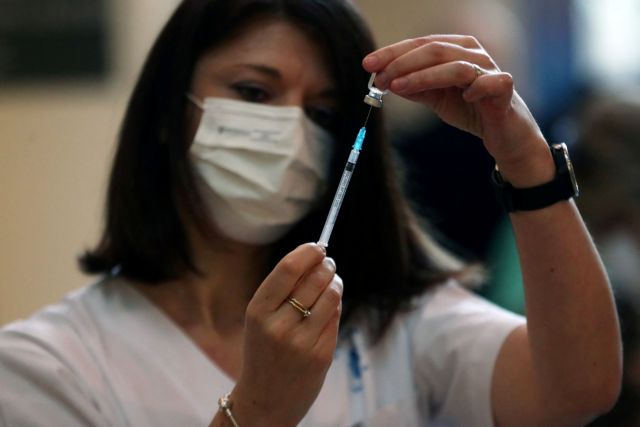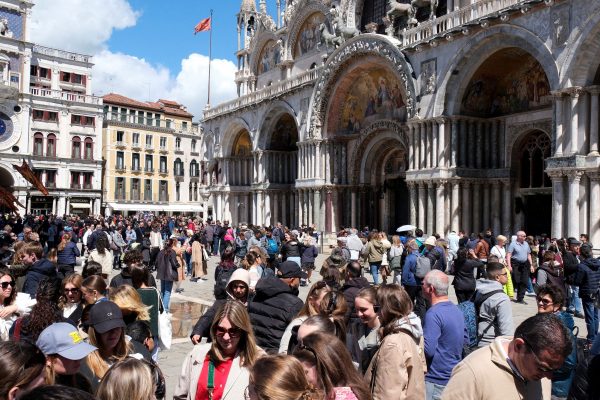
The Omicron variant is spreading so fast that surely some people often wonder about the effectiveness of preventive measures.
It is indeed disappointing to hear that Omicron infects people who have been vaccinated or given a booster dose. It seems that in some of us the vaccines against COVID-19 work strongly even against Omicron, while in others the effect is weaker.
A recent study by researchers at Harvard and MIT in Boston, USA, highlighted the spectacular diversity of the human immune system, which is also genetically regulated.
The Doctors of the Therapeutic Clinic of the Medical School of the National and Kapodistrian University of Athens, Lina Paschou (Assistant Professor of Endocrinology), Theodora Psaltopoulou (Professor of Therapeutic-Epidemiology-Preventive Medicine) and Thanos Aigatopis-Ka. results of this study. https://www.medrxiv.org/content/10.1101/2022.01.04.21268586v1
The role of lymphocytes
The researchers took blood samples from 76 volunteers to test for a subset of immune system cells known as T lymphocytes.
The researchers isolated the participants’ T lymphocytes and exposed them to various SARS-CoV-2 variants in experimental test tubes. They found that in 4 of 5 people (80%) the vaccine resulted in T cells that functioned just as well against the Omicron mutation compared to other variants. But in 1 in 5 people (20%) T lymphocytes were much less effective against the Omicron mutation, even though they worked well against the original variants. However, it was observed that the booster dose satisfactorily increased the T lymphocyte responses in the Omicron spike.
When our body encounters the SARS-CoV-2 spike protein, either after infection or after vaccination, some cells, known as antigen-presenting cells, display portions of the viral protein externally in T lymphocytes.
This process is based on proteins called HLA. Each of us has different genes that encode the HLA complex. Genetic differences, therefore, may contribute to the differences and the immune response. Also, while antibodies decrease over time, T lymphocytes provide a second line of defense, specifically cellular defense, that lasts longer. They are the main cells responsible for the so-called immune memory. Many experts consider them the most critical parameter of our defense against the Omicron variant.
20% have lower protection against vaccines against Omicron
In conclusion, 20% of people have lower protection against vaccines against Omicron due to a less effective T cell response.
But they are still better off than the unvaccinated people, especially those who have received a booster dose.
The optimistic reading of the new study is that 80% of vaccinated people still have a very good immune response to the Omicron variant
Latest News

Hellenic Food Authority Issues Food Safety Tips for Easter
Food safety tips on how to make sure your lamb has been properly inspected and your eggs stay fresh.

Greek Kiwifruit Exports Smash 200,000-Ton Mark, Setting New Record
According to data by the Association of Greek Fruit, Vegetable and Juice Exporters, Incofruit Hellas, between September 1, 2024, and April 17, 2025, kiwifruit exports increased by 14.2%.

Easter Tourism Boom: Greece Sees 18.3% Surge in Hotel Bookings
Among foreign markets, Israel has emerged as the biggest growth driver, with hotel bookings more than doubling—up 178.5% year-on-year.

Greece to Launch Fast-Track Tender for Offshore Hydrocarbon Exploration
Last week, Papastavrou signed the acceptance of interest for the two Cretan blocks, while similar decisions regarding the two Ionian Sea blocks were signed by his predecessor

American-Hellenic Chamber of Commerce to Open Washington D.C. Branch
AmCham's new office aims aims to deepen U.S.-Greece economic ties and promote investment and innovation between the two countries

Why Greece’s New Maritime Spatial Plan Is a Geopolitical Game-Changer
This landmark development is more than just a bureaucratic step — it's a strategic declaration about how Greece intends to use, protect, and assert control over its seas

Eurozone Inflation Eases to 2.2% in March
Compared to February, inflation decreased in 16 member states, remained unchanged in one, and rose in ten.

Bank of Greece: Primary Gov. Surplus €4.1b Jan.-March 2025
The data released today by the Bank of Greece revealed that the central government’s overall cash balance recorded a surplus of €1.465 billion in the first quarter of 2025, compared to a deficit of €359 million in the corresponding period of 2024.

Greek Government Reissues 10-Year Bond Auction for €200 Million
The amount to be auctioned will be up to 200 million euros, and the settlement date is set for Friday, April 25, 2025 (T+5)

Greece Defines Continental Shelf Limits and Maritime Zones in Landmark EU Document
The Maritime Spatial Planning (MSP) framework represents a comprehensive approach to spatial planning and is crucial for the successful development of a blue and circular economy








![Πλημμύρες: Σημειώθηκαν σε επίπεδα ρεκόρ στην Ευρώπη το 2024 [γράφημα]](https://www.ot.gr/wp-content/uploads/2025/04/FLOOD_HUNGRY-90x90.jpg)

































 Αριθμός Πιστοποίησης
Αριθμός Πιστοποίησης